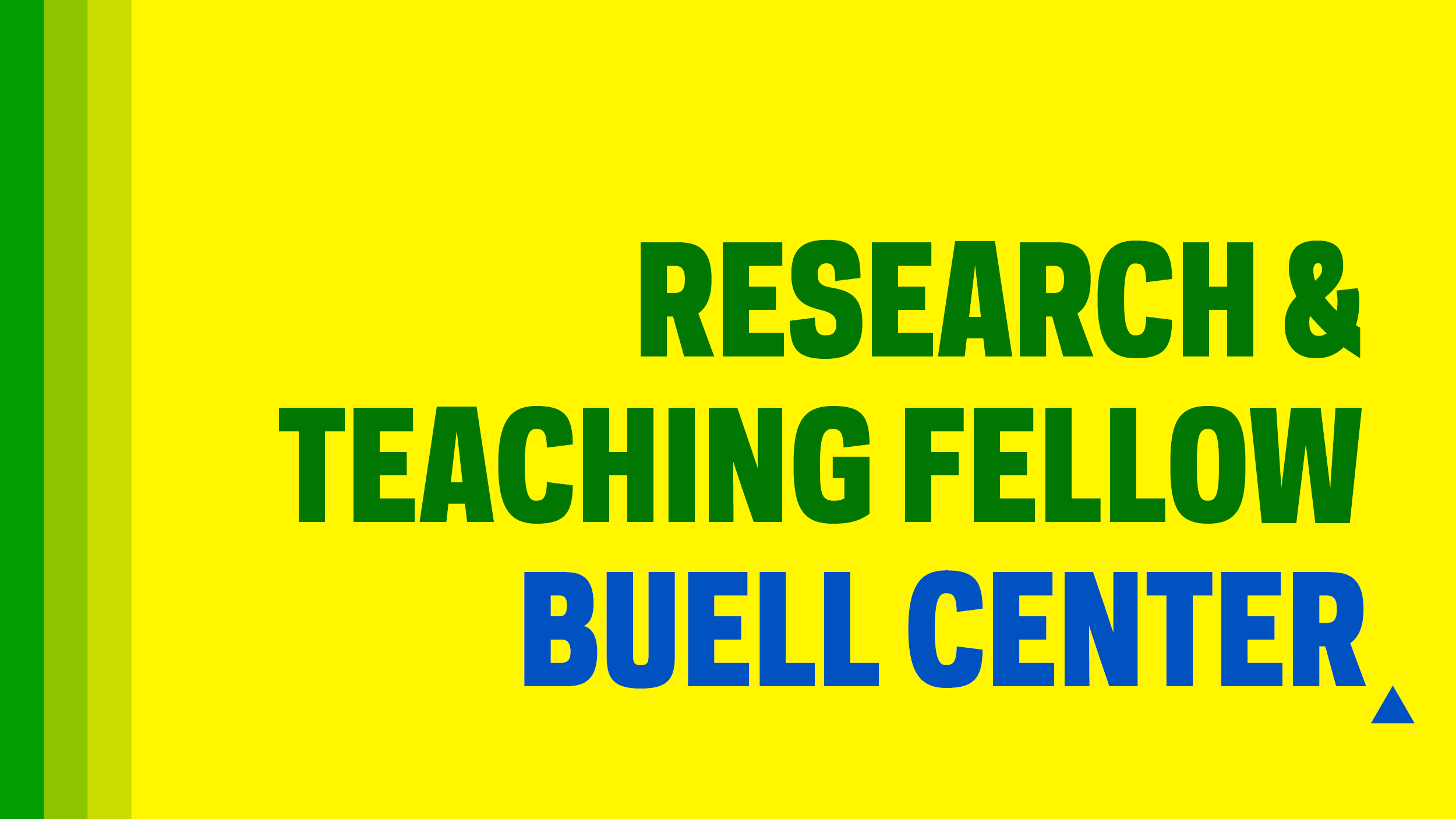Buell Postdoctoral Fellowship, 2024–26
The application period for the 24-26 Fellowship has closed.
The Buell Center at Columbia University seeks a recent doctoral recipient to join its intellectual community for a 21-month fellowship as a “Buell Center Research and Teaching Fellow.” Ideal candidates will be scholars of the built environment who are beginning an academic career of research and teaching, with a growing record of original writing intended for peer-reviewed publication. Complementary experience, such as design, curatorial, critical, or fourth-purpose organizing work, is welcome but not required. The 21-month fellowship will begin on September 1, 2024, and is intended to give fellows a chance to advance their own research, gain teaching experience, and take part in the ongoing intellectual life of the Buell Center; the Graduate School of Architecture, Planning, and Preservation (GSAPP); and Columbia University. The Fellow will be co-hosted by the Society of Fellows and Heyman Center for the Humanities. A recent PhD degree in Architecture or a related field is required by the start date of the appointment. PhDs granted within the last three years prior to the appointment start date are acceptable.
Successful candidates:
- must have a PhD conferred within three years of—and no later than—the start date of the appointment
- must demonstrate an interest in pushing the disciplinary or methodological norms of architecture and related fields of the built environment
- should have a growing record of bridging across disciplines in the humanities or social sciences
- may be focused on any historical period and geographic area in their research
The Fellow is expected to be in residence at Columbia for two academic years and will remain a fellow in the intervening summer, but not required to be in residence. In addition to presenting their research once yearly in a formal setting, Fellows will teach at least one semester as faculty in GSAPP’s architectural history survey course, “Questions in Architectural History” (QAH). The Fellow may also propose to teach a separate course based on their own research within GSAPP.
Interested applicants should submit: a CV; a cover letter; a research statement (1,500 words), dissertation abstract (150 words), one-sentence project description, one to three images (on one page); a teaching statement (500 words); at least one writing sample; and the names of three references. Recommendation letters will be solicited for shortlisted applicants.
The salary of the finalist selected for this role will be set based on a variety of factors, including but not limited to departmental budgets, qualifications, experience, education, licenses, specialty, and training. $75,000 represents the University’s good faith and reasonable estimate of possible compensation at the time of posting. Columbia University is an Equal Opportunity Employer / Disability / Veteran.
The Temple Hoyne Buell Center for the Study of American Architecture is a separately endowed entity within Columbia GSAPP, which sponsors interdisciplinary research through projects, workshops, public programming, publications, and awards. For further information about the Buell Center please visit: buellcenter.columbia.edu and/or reach out to [email protected].
Please visit our online application site at https://apply.interfolio.com/128122 for further information about this position and to submit your application. Review of applications will begin on October 2, 2023.



